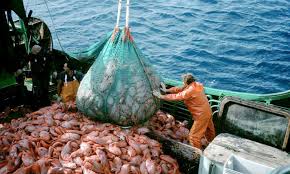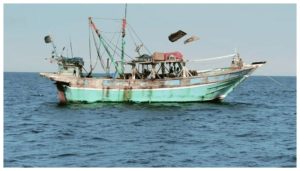KARACHI (Staff Report) – Depletion of different fish species in Pakistani waters is adversely affecting marine ecosystem and food web.
This was stated by speakers during a workshop on ‘Bait Fisheries Practices and Management in Pakistan’ which was organized by WWF-Pakistan at a local hotel in Karachi.
The workshop was attended by representatives from fisheries departments of Sindh and Balochistan including local fishermen of the coastal belt.
Muhammad Moazzam Khan, Technical Advisor (Marine Fisheries), WWF-Pakistan said that in Pakistan different types of baits and lures are used for catching commercially important fish species. Specific baitfish are being used by fishermen for targeting desired fish that includes live baits which are used for catching large sharks.
He further pointed out that despite immense potential of bait fish, no study has ever been carried out in the Pakistan on this subject.
He also said that there is no management plan for this important component of fisheries in Pakistan.
‘It is high time that plan for better management of bait fisheries in Pakistan needs to be developed,’ he added.
Umair Shahid, Northern Indian Ocean Tuna Coordinator, informed that WWF-Pakistan in collaboration with other international organizations is involved in management of bait fisheries in regional countries including the Maldives.
He also said that Skipjack Pole and line fisheries of the Maldives which is only Marine Stewardship Council (MSC) certified fisheries in the Indian Ocean is dependent on the baitfish which is used to chum the schools of skipjack tuna.
WWF-Pakistan is assisting Government of Maldives in developing a management plan for this important component of fisheries.
WWF-Pakistan is also planning to support similar work in other regional countries including Sri Lanka.
Ahmad Nadeem, Director of Balochistan Coastal Development Authority made a presentation on bait management for ivory shell fisheries. This shell is caught using traps and employing various baits and is exported to many countries including Taiwan, Korea, China and Japan.
He pointed out that use of chicken offal, as attractant, has created environmental degradation in some shallow areas along Balochistan coast.
This requires concrete measures for organization and management of important fisheries. Abdur Rahim, Coordinator for Balochistan, WWF-Pakistan outlined the bait fisheries in Balochistan and emphasized the need for conservation of the marine resources and promotion of organized bait fisheries which is necessary for protection of dwindling fish stocks.













